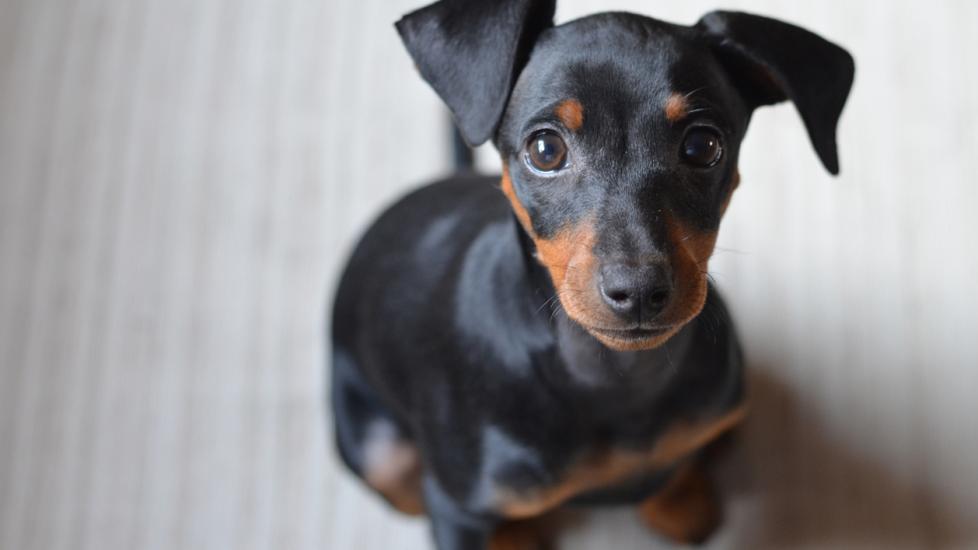Introduction: The Miniature Pinscher is a small yet feisty dog that exudes confidence with its robust build and energetic personality. Known for their alertness and bold nature, these dogs make wonderful companions for active individuals or families looking for a lively addition to their household.
Lifespan: Typically 12-14 years
Coat Length: Short and smooth
Alias(es): Min Pin, Zwergteckel (in Germany), Reagle (a mix between a Miniature Pinscher and a Beagle)
Height: 10 to 12 inches at the shoulder
Place of Origin: Germany
Body Size: Small; however, they are sturdy and muscular for their size.
Shedding Level: Low to moderate shedders
Trainability: Intelligent and eager to please, Miniature Pinschers respond well to consistent training methods. They can be independent thinkers, so early socialization and obedience training are recommended.
Characteristics: These dogs have an innate curiosity and love exploring their surroundings. Their high prey drive makes them excellent ratters. They are vocal and may bark frequently if not properly trained. Socialization is key as they can sometimes be wary of strangers. With proper care and attention, Miniature Pinschers thrive on human interaction and are known to form strong bonds with their family members.
Exercise Needs: Despite their small stature, Miniature Pinschers require daily physical activity to keep them mentally stimulated and physically fit. Regular walks, play sessions, and opportunities for running off-leash will satisfy their exercise requirements.
Health Considerations: Some common health issues include patellar luxation (slipping kneecaps), von Willebrand disease (bleeding disorder), and intervertebral disc disease. It’s important to work with reputable breeders who perform genetic testing and provide a health guarantee for their puppies.
Grooming: Grooming needs are minimal due to their short coats. A weekly brushing with a hound glove or soft brush will help remove loose hair and maintain a healthy shine. Bathe only when necessary as over bathing can strip the natural oils from their skin. Nails should be trimmed regularly if they do not wear down naturally through walking on hard surfaces. Ear cleaning may also be needed to prevent wax buildup and odor.
Feeding and Diet: A high-quality dry food formulated for small dogs is appropriate for Miniature Pinschers. Because they have a tendency towards obesity, it’s crucial to monitor their calorie intake and weight closely. Treats should be given sparingly as part of a balanced diet under veterinary supervision.
Legal Requirements/Restrictions: Depending on where you live, there might be local laws regarding certain breeds or restrictions on keeping dogs in apartments or condominiums. Always check with your local authorities before bringing home any new pet.
Suitable Owners/Living Environment: Miniature Pinschers do best in households where someone is present most of the time, as they don’t like being left alone for long periods. They need plenty of mental stimulation and regular exercise to stay happy and healthy. Due to their barking tendencies, they may not be ideal for apartment living unless rigorous training is provided to control this behavior.
Conclusion: The Miniature Pinscher is a spirited companion that brings joy and liveliness into homes with adequate space and commitment to their care and training. For those willing to meet their needs, the “King of Toys” can be a loyal friend for many years.
